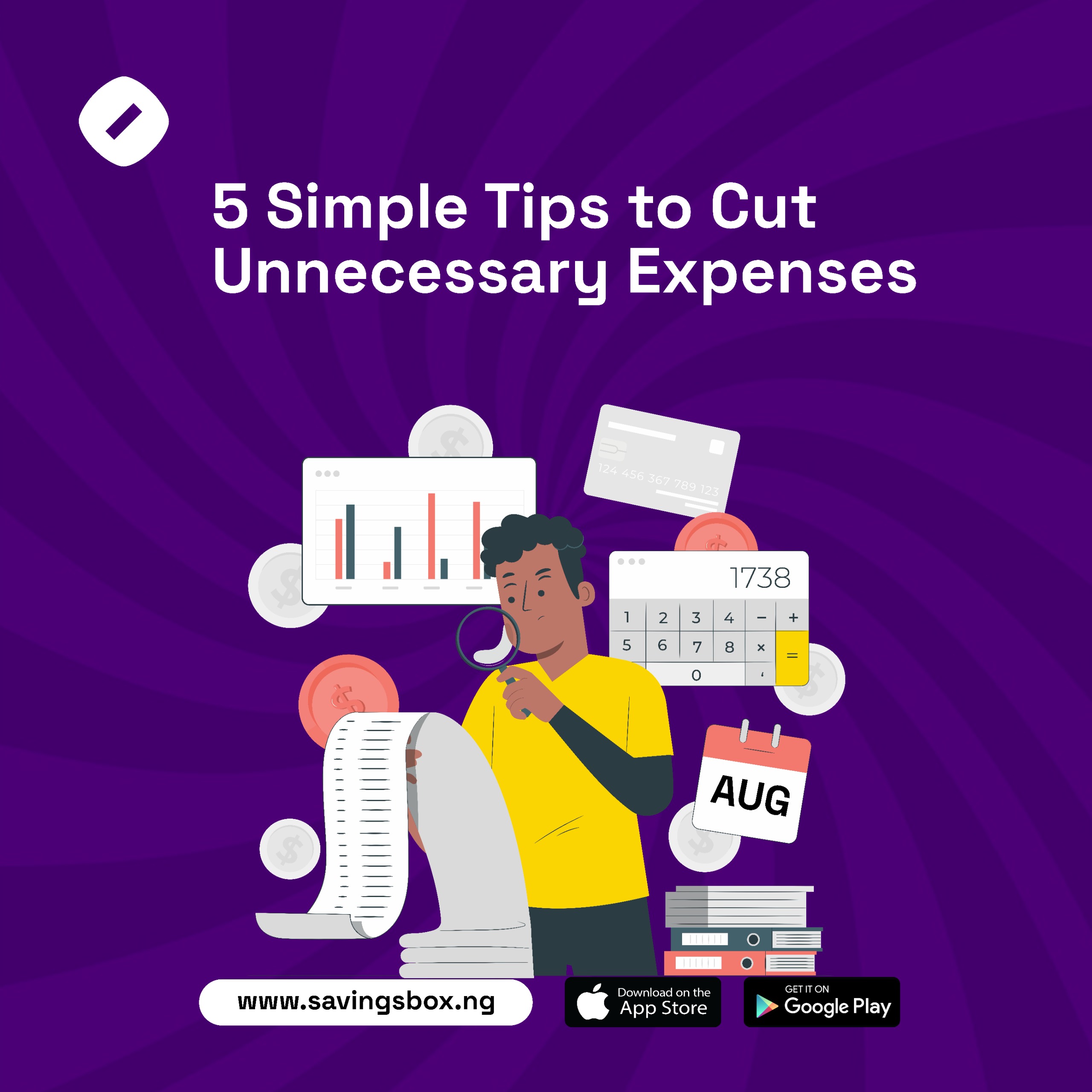Share This Article
Hey there !!!
Do you know that unnecessary expenses, no matter how insignificant they may seem, can significantly impact your financial health. Small leaks sink big ships. Here are five simple tips to help you cut back and save more:
1. Track Your Spending
- Why It Matters: You can’t manage what you don’t measure. Tracking your spending gives you a clear picture of where your money is going and helps you identify areas where you might be overspending.
- How to Do It: Use a budgeting app or a simple spreadsheet to record all your purchases. Review your spending weekly or monthly to spot patterns and find areas to cut back.
2. Cancel Unused Subscriptions
- Why It Matters: Subscription services are easy to forget, but they can add up quickly. If you’re not using a service regularly, it’s essentially money down the drain.
- How to Do It: Take inventory of all your subscriptions—streaming services, gym memberships, magazines, etc. Cancel the ones you rarely use or consider downgrading to a less expensive plan.
3. Avoid Impulse Purchases
- Why It Matters: Impulse buying is one of the biggest culprits of unnecessary spending. These small, unplanned purchases can accumulate and significantly impact your budget.
- How to Do It: Implement the 24-hour rule—wait a day before making any non-essential purchase. This cooling-off period helps you decide if you really need the item or if it’s just a fleeting desire.
4. Plan Your Meals
- Why It Matters: Eating out frequently or buying takeout can quickly eat into your budget. Planning your meals not only saves money but also promotes healthier eating habits.
- How to Do It: Dedicate time each week to plan your meals and make a grocery list. Cooking at home is usually much cheaper than dining out, and you can make larger portions to save for later.
5. Use Cash Instead of Cards
- Why It Matters: Paying with cash can make you more aware of your spending and help curb unnecessary purchases. It’s harder to part with physical money than to swipe a card.
- How to Do It: Withdraw a set amount of cash each week for discretionary spending. Once the cash is gone, you know it’s time to stop spending for the week.
By implementing these simple tips, you can significantly reduce your unnecessary expenses and achieve your financial goals. Remember, small changes can lead to big savings!
Would you like to focus on a specific area of unnecessary spending?



1 Comment
SavePlus UAE
Great tips for reducing unnecessary expenses and saving more! Smart spending habits can make a big difference. Thanks for sharing! saveplus.ae